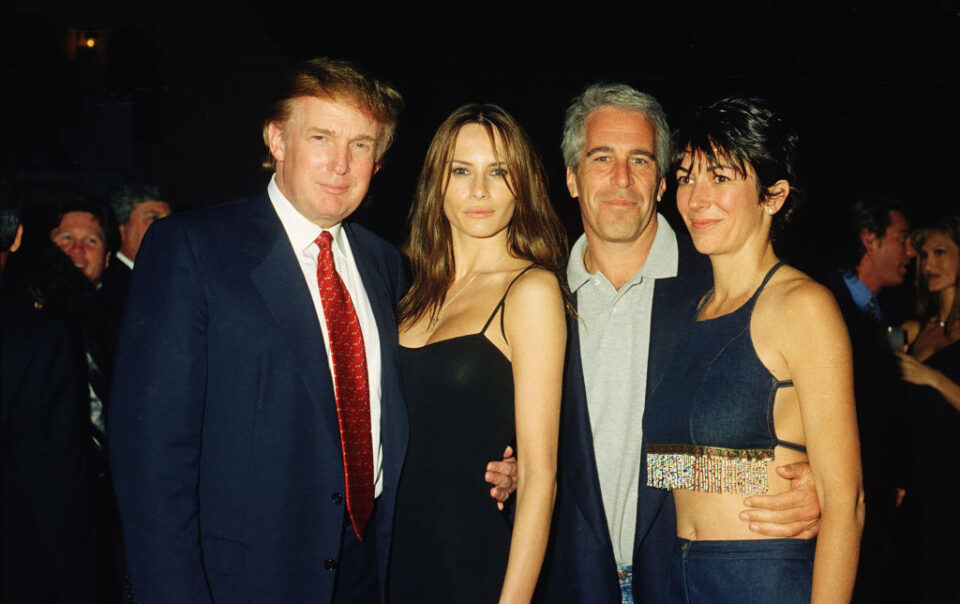Of all the muscles that Joohoney strengthened during his mandatory enlistment in the South Korean military, his mind was the most important. To carry out day-to-day tasks, the 30-year-old rapper found he needed to build up a solid mental core — and that stability has neatly carried over into his equally demanding civilian life as one-sixth of K-pop powerhouse group Monsta X.
Explore
See latest videos, charts and news
“I’ve always loved the phrase ‘just do it,’” he explains to Billboard, sitting next to bandmates Shownu, Minhyuk, Kihyun and Hyungwon in a cozy L.A. studio (the final member, I.M, is recuperating from an injury back in Seoul at the time of the interview). “It was in the military that I took that further and started thinking, ‘No brain, no pain,’” he continues. “Right now, that’s pretty much been my approach. No matter what kind of challenge I’m faced with, not to get caught up in the moment and keep moving forward.”
Trending on Billboard
Still, there was a lot to consider while making their latest EP, The X, which is at once a celebration of 10 years together and a long-awaited return to form. Now having all completed their compulsory, 18-month military service apart from I.M, the six members of Monsta X were more than eager to pick up where they left off. “It’s been four years since, as a group, we’ve released a new album,” says honey-voiced Kihyun. That’s nearly an eternity in a landscape that moves as fast as K-pop. The gap weighed heavily on the recording process. “That was my mindset,” he adds. “We had to show what we got.”
The result is a display of remarkable stamina. Sophisticated B-sides (“Savior,” “Tuscan Leather,” “Catch Me Now”) speed light years ahead of peers, unrivaled in their sensuality. But ground-shaking, Dem Jointz-produced banger “N the Front” sends the boldest message — Monsta X remains at the top of their game, it seems to say, leading the charge not only for their generation of K-pop, but also setting the standard for an entire industry that they just took extended time away from.
That spirit is borne out by the chest-puffing lead single “Do What I Want,” which I.M mentions over email that he hoped would “shock” fans. “Yup, it’s been a while since I crushed this race, ya/ You already know I have the pace of a stallion,” his writing partner Joohoney brags in its lyrics. This isn’t empty bravado, either. In the intervening year-and-a-half off, he made 40 songs, mostly while on vacation. “I wouldn’t say I felt like I needed to catch up on lost time once I got back,” the rapper shrugs. “I knew that I’d get back into a rhythm.”
Today is yet another test of the group’s endurance. While never-ending rounds of press spread into the evening, Monsta X sets a tempo and refuses to waver, cracking jokes and hyping each other up while taking stabs at English. As always, no time or effort is being spared in the lead-up to KCON LA — a homecoming to the stage Monsta X first played just months after debut — and the subsequent album release. Recently, though, there’s a new wrinkle in the members’ schedules: shooting TikToks, which they manage to squeeze into a short break between two sit-down interviews.
“These days, the trend is short form,” explains Minhyuk. It’s not exactly a development to his liking, he says, tossing his hands up in faux indignation. “But I can’t change the world.”
Regardless of whether he’s putting on extra ire for comedic effect, there’s truth to what Minhyuk is saying. “It feels like we’ve moved away from a culture of appreciating the whole music video, the whole song,” he adds. “Because now it’s become more like, ‘Is there a moment that is going to go viral?’”
The critique almost makes you forget that the singer is only in his early thirties. Yet, while the six members aren’t quite elder statesmen of K-pop, they’ve witnessed some of these seismic changes take root over the past decade.
What really stands out, though? The ways the industry has remained just the same: Monsta X was originally formed in 2015 by a brutal Mnet reality show, which put talented young hopefuls through the wringer for a potential spot in the lineup. These programs still abound to this day, despite the mental and physical toll they take on contestants.
Returning to a similar show as a mentor earlier this summer, Kihyun felt like he had just stepped back in time. “All of this must be really tough,” he recalls thinking during the taping. “I’ve been in their shoes, so I felt like I knew exactly what [the trainees] were feeling.” It stirred a mixture of sympathy and awe inside him: their earnestness took him back to the start of their journey, not knowing if “making the cut” would even translate to success in the real world. As he considered the “challenges they will have to face,” he realized those were once ahead of him, as well.
Monsta X debuted as a group of adults aged 19 to 22, which is hardly common practice, since K-pop labels seek to maximize viable years for their boy groups. Kids are frequently scouted as early as elementary school, “while they are still very much growing up and figuring themselves out,” Minhyuk points out, scratching the back of his neck. “It usually means that idols are learning to manage and reciprocate the love and attention they are getting from their fans before they ever really learn to take care of their own mental health.” He continues, “Just being honest with you here, I personally think it’s one of the bigger flaws of the K-pop industry.”
He offers a piece of wisdom to his fellow idols. “My wish would be for those in K-pop, those who are making music, those who are performing for audience… Learn to put yourself first,” the singer says. He doesn’t have all the answers, but hopes those at the top, too, can work toward putting guardrails in place. Joohoney, who took a hiatus to manage his anxiety in 2020, doesn’t mince words: “I also think it’s important for the companies leading the K-pop industry to really support and respect their artists,” he says, bluntly enough to startle a laugh out of his members.
One such show of respect is allowing groups to determine their own identities. In the last decade, “things have already changed a lot” in that regard, Kihyun notes, though offering input remains a constant push and pull.
“Idols aren’t just carrying out what their companies have planned,” he says. “We see more involvement than there was before. And yet, it doesn’t mean that everyone gets to have entirely free rein, right?” In an ideal world, the vocalist adds, it would be “so fulfilling if they get to have agency and [create] albums they feel inspired to create.”
In that arena, they’ve long been pioneers. While Monsta X operates under the direction of Starship Entertainment, their management company, Joohoney and I.M have also worked on many of their own songs since the very beginning. Over time, they moved up from writing their rap verses to stepping into more significant roles producing and directing groupmates in the booth. Along the way, the others — including former member Wonho — have picked up the pen, too.
Thus, if K-pop idols are taken more seriously as artists now, Monsta X helped unravel those stereotypes. “I once saw an interview of someone saying, ‘K-pop is not real music,’” Joohoney says. “Of course, I do acknowledge that there may be aspects that may lead others in the music industry to feel that way.” The business of K-pop doesn’t always lend itself to the appearance of “sincerity and authenticity,” the rapper clarifies. “But I really just want to say that it makes me proud to know that K-pop has become [recognized as] its own genre.”
K-pop has left a stamp that’s bigger than just marketing — it’s influenced a new global sound. At the same time, it’s hard to pin down, uniquely able to shapeshift. K-pop may crib from many other genres, sure, but that changeability, that experimentation, is ultimately its own special sauce. Hyungwon, who moonlights as a DJ and co-wrote the new EP’s ultra-groovy R&B cut “Fire & Ice” alongside collaborators from around the world, notes that the flow of ideas increasingly goes both ways.
“More recently, I’ve noticed many more kinds of music, these different genres that are loved across the world, bring new colors to what we’d consider K-pop. And, out of that, have come these new shades,” he says. “I think we’ve entered a generation of artists who are constantly pushing themselves to explore new techniques and to experiment with new kinds of music, without feeling bound to one genre.”
If there’s one word to describe Monsta X, it’s “boundless.” That’s how the group became the third K-pop act to reach the Billboard 200’s top 10, after all. In 2020, the group released the English album All About Luv, opening it up not only to a new language, but new everything: bass-heavy hip-hop switched out for airplay-friendly pop hooks, rappers trying their hand at singing (which they’re quite skilled at, for the record), blatantly sexual lyrics replacing softer innuendo. Then, in another flex of versatility, Monsta X did it again, with 2021’s The Dreaming.
“It takes a great deal of skill and talent for a Korean artist to write and release an album in a language that is not their own,” Hyungwon says, referring to the two past works with a lot of pride. “Our group, and other K-pop artists, get to take part in this, and it’s not something you see all too often elsewhere.” So, can we expect another English album? “Spoiler,” Joohoney quips. But with major global ambitions intact, it can only be a matter of time.
“We want to be part of the big K-pop wave,” Shownu suddenly offers, the leader finally stepping into a speaking role, after being mostly content to hand that duty off to his members. It’s a surprise for more reasons than one: Even apart from the U.S. chart milestones, the group has demonstrated itself as a prolific creative force in the K-pop industry. What else is there to prove?
“Not enough,” he replies. “More into the big wave.” But that’s exactly what they’ve been saying this whole time: The only ones who can set Monsta X’s ceiling are the six members themselves.
Additional translation provided by Claire Min.





